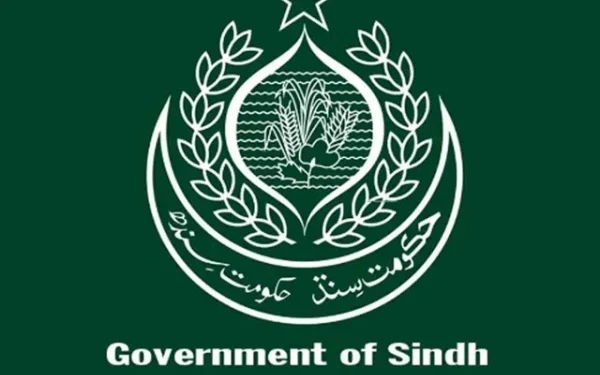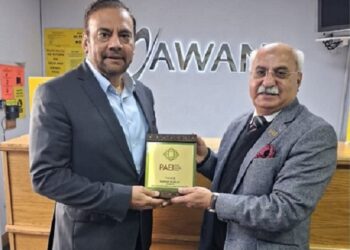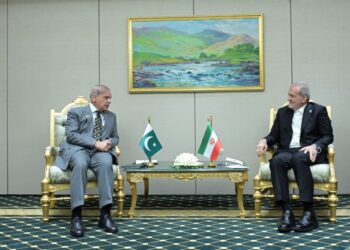Karachi – The Government of Sindh has officially announced that the provincial budget for the fiscal year 2025-26 will be presented in the Sindh Assembly on June 13, 2025. The budget, expected to cover a broad spectrum of development and administrative priorities, includes a comprehensive development allocation of Rs 600 billion, catering to 57 provincial departments and autonomous bodies.
This major financial announcement comes at a crucial time as Sindh, like other provinces in Pakistan, strives to balance fiscal constraints with the pressing need for infrastructure development, healthcare improvements, educational reform, and social protection.
Finalization of the Budget: A Strategic Planning Process
The budget was finalized after a three-day planning session, which was chaired by Provincial Minister for Planning and Development Syed Nasir Hussain Shah. The sessions involved extensive consultations and coordination among top officials, departmental representatives, and financial experts, aimed at ensuring a balanced distribution of funds aligned with the government’s policy priorities.
The finalized budget reflects both long-term developmental goals and the immediate needs of the population, particularly in areas such as health, education, irrigation, and transportation. The budget will be formally presented in the Sindh Assembly, where lawmakers will debate the proposals before final approval.
Breakdown of Proposed Budget Allocations for Key Sectors
Below is a detailed breakdown of the major budgetary allocations by sector:
1. Health Sector: Rs 51 Billion Allocation
The Health Department has been allocated Rs 51 billion, underscoring the provincial government’s commitment to strengthening public health infrastructure. The funding is expected to be utilized for:
- Upgrading existing hospitals and clinics
- Expanding rural health services
- Procurement of modern medical equipment
- Recruitment and training of medical staff
- Strengthening maternal and child health programs
This move comes in the wake of lessons learned during the COVID-19 pandemic, which exposed gaps in the healthcare system across the country, especially in underserved rural districts.
2. Education Sector: Rs 8 Billion for Schools
An allocation of Rs 8 billion has been proposed for the School Education Department, a figure that, while modest, is expected to support:
- Construction of new school buildings
- Repair of dilapidated classrooms
- Provision of free textbooks and learning materials
- Upgrading teacher training modules
- Promoting girls’ education in rural areas
The Sindh government has repeatedly expressed its intent to improve educational outcomes, although the education sector continues to face challenges such as high dropout rates and lack of access in remote regions.
3. Agriculture Department: Rs 13 Billion for Agrarian Boost
With agriculture being the backbone of Sindh’s economy, the allocation of Rs 13 billion for the Agriculture Department is aimed at:
- Supporting small-scale farmers
- Introducing climate-resilient crops
- Modernizing irrigation techniques
- Providing subsidies for fertilizers and pesticides
Sindh remains a major contributor to Pakistan’s wheat, rice, and cotton production, making agricultural sustainability a top priority.
4. Irrigation Department: Rs 96 Billion to Address Water Challenges
One of the largest sectoral allocations, Rs 96 billion, has been reserved for the Irrigation Department, reflecting the government’s focus on water resource management. This funding will support:
- Repair and maintenance of canal systems
- Implementation of water conservation projects
- Strengthening flood protection infrastructure
- Addressing issues related to water logging and salinity
With climate change and inconsistent rainfall patterns affecting crop yields, the irrigation sector’s revitalization is critical to long-term food security.
5. Works and Services Department: Rs 1.39 Trillion Mega Allocation
A staggering Rs 1.39 trillion has been proposed for the Works and Services Department, which includes the construction and maintenance of roads, bridges, public buildings, and government infrastructure across Sindh. This reflects the government’s drive to:
- Enhance connectivity between rural and urban areas
- Support the growth of industrial zones
- Improve public service delivery through upgraded facilities
This investment is expected to create thousands of jobs in the construction sector and stimulate economic activity across the province.
6. Transport Department: Rs 57 Billion to Improve Mobility
The Transport Department has been allocated Rs 57 billion, aiming to revamp public transportation systems and reduce traffic congestion in cities like Karachi and Hyderabad. Proposed initiatives include:
- Expansion of the People’s Bus Service
- Development of mass transit corridors
- Smart traffic management systems
- Modernization of bus terminals
Urban transport woes, especially in Karachi, have long plagued commuters, and this investment is expected to ease mobility and reduce pollution.
7. Local Government: Rs 13 Billion for Municipal Development
The Local Government Department has been allocated Rs 13 billion, which will be utilized to:
- Improve municipal services such as waste management
- Upgrade water supply and sanitation infrastructure
- Strengthen local governance capacities
This is particularly crucial as local governments bear the brunt of public dissatisfaction regarding service delivery.
Other Departmental Allocations
In addition to the major sectors mentioned above, the Sindh government has proposed allocations for several other important departments:
- Planning Department: Rs 16 billion
- Services Department: Rs 14 billion
- Social Protection Department: Rs 12 billion
- Home Department: Rs 11 billion
- Energy Department: Rs 9 billion
- Finance Department: Rs 8 billion
- Forests Department: Rs 4 billion
- Industries Department: Rs 4 billion
- Food Department: Rs 410 million
- Human Rights Department: Rs 130 million
- Information Department: Rs 270 million
These allocations suggest a holistic approach to governance, ensuring that sectors like energy, human rights, and information are not neglected.
Context and Challenges Ahead
The announcement of the budget comes at a time when Pakistan is facing serious economic headwinds, including inflation, rupee depreciation, and mounting debt servicing costs. The provinces are under pressure to utilize their financial resources more efficiently while ensuring transparency and accountability.
Moreover, Sindh’s budget will be closely watched by civil society and donor organizations, particularly for how well it addresses:
- Gender parity
- Youth employment
- Climate resilience
- Urban-rural development imbalance
Upcoming Budget Session: What to Expect
As the budget is tabled on June 13, the Sindh Assembly is expected to witness vigorous debates over sectoral allocations, financial priorities, and implementation efficiency. Opposition parties may raise concerns over transparency, allocation disparities, and actual execution of past development programs.
Citizens and stakeholders alike will be looking for a people-centric budget that offers both economic relief and development progress, especially amid rising living costs.
Conclusion
The Sindh government’s upcoming budget for fiscal year 2025-26 reflects a blend of development ambition and social responsibility. With major allocations across infrastructure, health, education, irrigation, and transport, the government aims to bolster public services and economic growth. As the formal presentation nears, attention will turn to how effectively these funds are implemented and whether they truly address the needs of the people of Sindh.

























